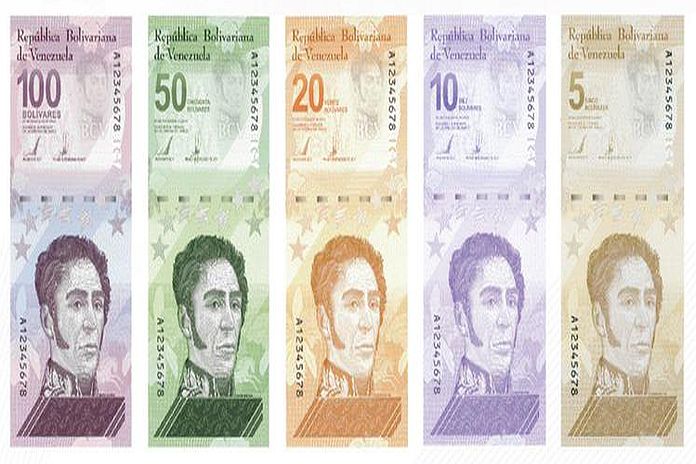Mérida, (venezuelanalysis.com) – The Venezuelan Central Bank (BCV) will overhaul the national currency beginning in October.
A BCV communique on Thursday announced the launch of the digital bolívar (BsD), wiping off six zeroes and replacing the sovereign bolívar (BsS) in an attempt to “introduce a simpler monetary scale.”
“The monetary scale adjustment […] is necessary at a moment when the country begins on the path of economic recovery following the crisis produced by brutal attacks against our economy, our currency, and the criminal imposition of a financial blockade,” the BCV statement read.
The Venezuelan Central Bank released the designs of the new 1 BsD coin and bills from 5 to 100 BsD, featuring independence hero Simón Bolívar on the front and a tribute to the bicentenary of the decisive Battle of Carabobo on the back.
The Caribbean country’s financial regulator likewise emphasized the need to accelerate the transition towards a digital economy by modernizing payment systems. With inflation causing severe cash shortages, Venezuelan banks have developed a number of practical digital transaction options.
Simultaneously, there has been a growing dollarization of day-to-day transactions, with retailers mostly setting their prices in US dollars.
The new reconversion comes a mere three years after the introduction of the sovereign bolívar in August 2018. At the time, the Central Bank removed five zeroes from the existing strong bolívar (BsF), and the new currency was rolled out as part of a wide-reaching set of reforms known as the Economic Recovery, Growth and Prosperity Plan.
However, after a short-lived period of stability, the bolívar’s devaluation and inflation resumed unabated. Increasingly liberal economic measures by the Nicolás Maduro government, including the lifting of foreign exchange controls, managed to slow down the inflation-devaluation spiral but not completely.
Quarterly devaluation of the sovereign bolívar since its introduction. Venezuela’s currency has devalued almost entirely but the pace has slowed in recent months. (Venezuelanalysis w/ BCV data).
As a result, the sovereign bolívar lost its value almost entirely in three years. The exchange rate stood 60 BsS to US $1 in August 2018 and fell to 4.05 million BsS to US $1 at the time of writing. The BCV has twice had to introduce new sets of bills into circulation, with 1 million BsS currently the highest denomination (roughly $0.25).
Economist and university professor Ingerzon Freites told Venezuelanalysis that even though devaluation had slowed down in recent months, the reconversion in itself is just a “cosmetic, accounting tool” which needs to be part of a wider “macro-economic and fiscal stability plan.”
“The reconversion needs to be part of a program that has clear measures, goals, targets in figures; transparency to generate confidence in ordinary people, economic agents, investors, etc,” he stressed.
Freites added that the government’s recent economic “liberalization” path can offer clues about the measures to come. “The plan needs to be transparent and start from an honest assessment of the present situation,” he reiterated while also praising a Friday official announcement that import taxes will be levied on 597 products in order to boost national production.
The Venezuelan economy has been battered by a seven-year recession and is suffering under the weight of crushing US sanctions, with GDP shrinking by 65 percent between 2013 and the first trimester of 2019, according to the most recent BCV data. Some forecasts have the country returning to economic growth in 2021.
For its part, the Maduro government has looked to get the economy back on track by offering ever more favorable conditions for private investment, including tax breaks and weakened labor protections. Nevertheless, legislative initiatives such as the Anti-blockade Law and Special Economic Zones (SEZs) have been mired in controversy, with Chavista organizations and intellectuals arguing that the measures endanger the country’s sovereignty and break with former president Hugo Chávez’s socialist project.





